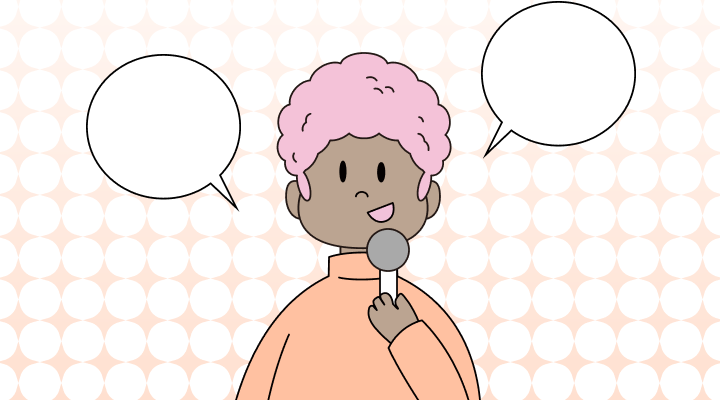In the U.S., both undergraduate and graduate programs often interview prospective students as a part of the admissions process. This can be an especially challenging step for international students, who may have a cultural or linguistic barrier to performing well during an interview. In this post, you'll find some tips regarding the interview and how to prepare for it!
Interview Preparation
If you have trouble thinking on the spot or find yourself getting anxious about the interview, you may want to prepare answers to common interview questions beforehand. Try preparing your answers in bullet points, rather than writing them out word-for-word. If you try to memorize all your answers, you may sound scripted and unnatural during your interview.
Below are some common interview questions, followed by a brief guide of what you might want to discuss:
- Tell me about yourself. This is often an icebreaker question. Provide a brief overview of your background, interests, and experiences.
- Why are you interested in attending our college/university? Be prepared to discuss specific aspects of the institution that appeal to you, such as academic programs, campus culture, or location. It's important to have an answer that can't be applied to other schools: for instance, "a rigorous academic program" doesn't say much, while "a top-ranked engineering program where the faculty includes Professor X, a leading expert in Y" says much more.
- What are your academic interests and goals? Talk about your intended major, any academic achievements, and your future career aspirations. It's great to connect this answer back to why your interests and goals would best be served by this college in particular.
- Tell me about a significant achievement or accomplishment. Highlight a specific achievement and the skills or qualities it showcases. This doesn't necessarily have to be a flashy academic or extracurricular accolade; you could also talk about a personal project or an interpersonal accomplishment if that means more to you.
- How do you plan to contribute to our campus community? Explain how you'll engage in clubs, initiatives, or activities on campus and contribute to the college community. Bonus points if you name an actual club or initiative!
- What do you consider to be your strengths and weaknesses? Be honest! Interviewers can tell when you talk about a "made-up problem". This is a chance for you to be vulnerable and self-aware. Make sure you frame your weaknesses in a way that shows self-compassion as well as a drive and willingness to improve.
- How do you handle challenges or setbacks? Share an example of a difficult situation you've faced, but spend more time talking about how you handled it rather than how hard it was. Try to highlight the qualities that helped you overcome the challenge: was it your hard work and consistency, kindness and empathy, innovation and creativity?
- Can you discuss a book, article, or idea that has influenced you?Mention a piece of literature, research, or concept that has had a significant impact on your thinking. Try to be genuine and think about something you've actually read recently! There's no pressure for this to connect to your academic or extracurricular history.
- Tell me about a person who has had a significant influence on your life. Discuss someone who has inspired you, and explain how they've shaped your perspective and values. This can be a public or historical figure, but it can also be someone in your private life who has influenced you.
- Do you have any questions? Don't say no! Use this opportunity to ask any questions you have about the college; it's a chance for you to demonstrate interest and prior research. If your interviewer is an alumnus of the college (as is common for undergraduate interviews), you can ask about their experience at the school and make a personal connection.
During the Interview
One challenge for the college interview is finding the right balance between formal and casual. It's important to be polite, but if you’re from a culture where you would typically be extremely formal and reserved in front of an interviewer, you might also want to loosen up a little bit.
Remember, at the end of the day, you’re just having a conversation with another person—that's all an interview is! Start by being friendly and polite, and if your interviewer speaks to you more casually, you can adjust to match their tone.
Even if you spent lots of time before the interview preparing answers, try to let go of any sort of 'mental script' once the actual interview begins. Trust that your preparation has readied you to give cohesive answers, and lean into the natural flow of the conversation.
Want to sound like a native speaker ?
Engram’s AI-powered grammar checker makes your English sound like a native speaker’s, suggesting natural English expressions on top of fixing grammar, spelling, punctuation, word order, and vocabulary.

References:
https://www.usnews.com/education/best-colleges/articles/college-interview-questions-to-prepare-for












